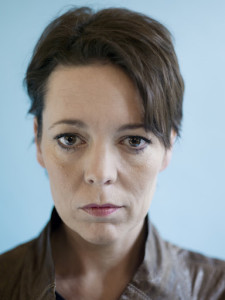 The Broadchurch star has added her voice to a radio documentary which tells of the extraordinary risks women in the previously war-torn country STILL face.
The Broadchurch star has added her voice to a radio documentary which tells of the extraordinary risks women in the previously war-torn country STILL face.
She said: “Being a teacher, a doctor, a politician – these are important jobs but they shouldn’t be dangerous ones.
“The brave women whose words I’ve voiced risk so much to educate, to care and to shape the future of their country.
“Women like these are the hope for Afghanistan’s future and the UK must not abandon them to the Taliban now.”
The programme, due to be aired on Radio Four this evening, explores life for women at a time when security is deteriorating following the departure of foreign troops from the country.
It is based on testimony by a handful of women, who BBC journalist Lyse Doucet met during a recent visit to the capital Kabul.
Produced with Amnesty International, it features the stories of three women – a gynaecologist, the head teacher of a girls’ school and a women’s rights political advocate.
It was originally conceived as a performance of a play based on their testimony, entitled Even If We Lose our Loves.
However the programme now features extracts from the play but not interviews with the three women as two of them have recently been forced into hiding due to renewed security threats.
Last week, to coincide with the London Conference on Afghanistan, a coalition of charities and aid organisations, the British and Irish Agencies Afghanistan (BAAG), released survey results showing that aid workers and rights campaigners in Afghanistan feel dramatically less safe than a year ago.
Sixty percent of the Afghans who responded reported that they felt less safe in their work during the past year, with half of survey respondents stating that either they, or their colleagues, have suffered intimidation or death threats during that time.
The lives of women have been steadily improving since the fall of the Taliban 13 years ago.
They had all been forced to wear the burkha, were not educated past the age of eight and were not allowed to be in the presence of men, other than ‘close relatives’.
Cosmetics were banned, they were forbidden from appearing at public gatherings and around 80 per cent of marriages were forced.
Punishments for so-called breaches of Taliban law were harsh and teachers faced being killed for daring to educate older girls while public floggings were commonplace.
Well-educated women have risen to positions of power within hospitals and mortality rates are down however the threat of violence and rape looms large.
Last week, at the London Conference on Afghanistan, their newly elected President Ashaf Ghani made it clear that empowering women is one of his top priorities.
He said: “We have gone back in time. I just want to give opportunities to Afghan women that my grandmother had. What’s wrong with that?
“Speaking Out, Losing Lives” is on BBC Radio 4 on Monday 8 December at 8pm.
Source: express.co.uk – UK must not abandon Afghan women to the Taliban, warns Olivia Colman